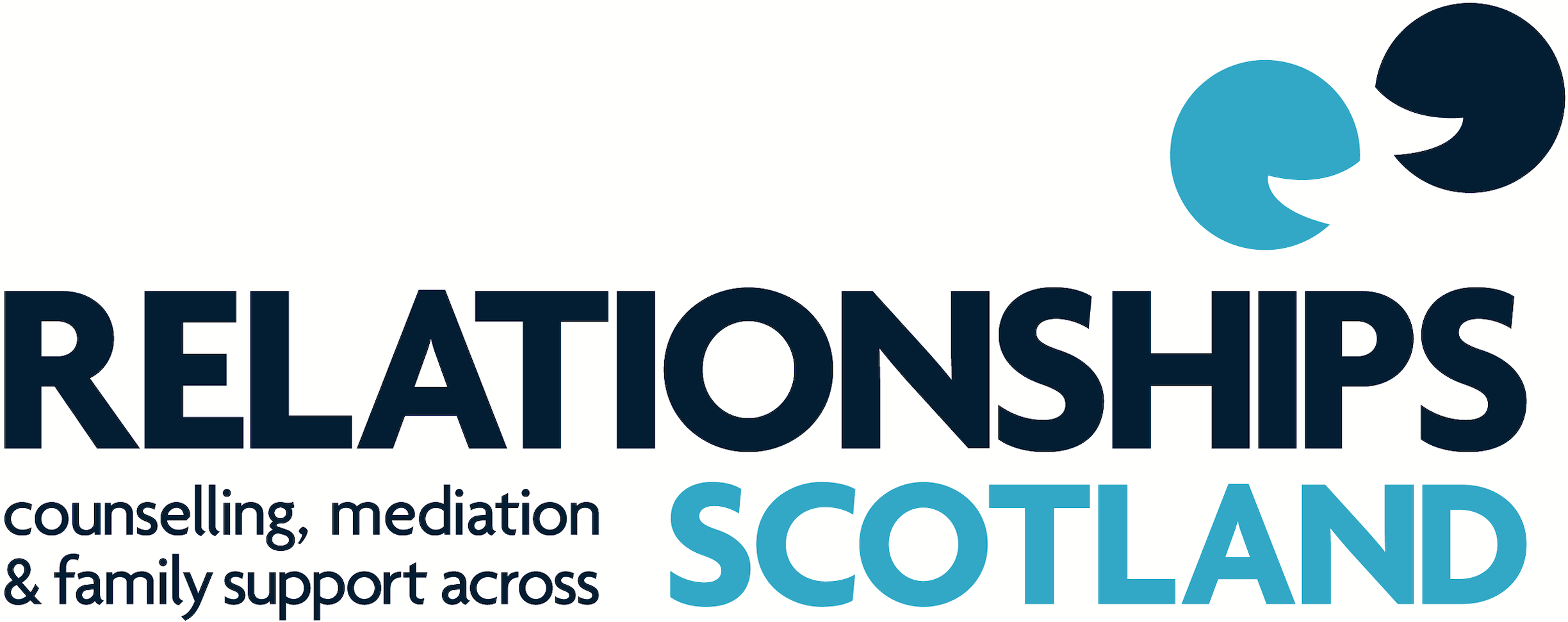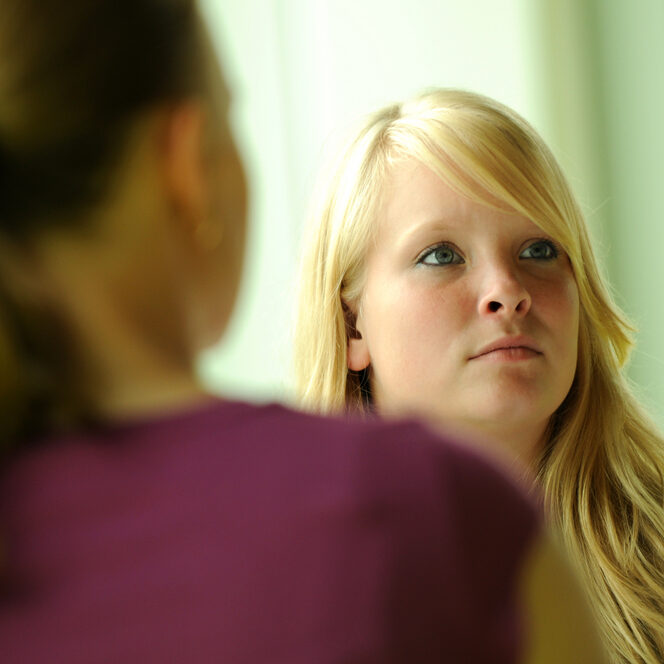How counselling helps
Relationship Counselling is available to anyone in Scotland over 16 who is worried about or wants to explore the impact of their adult relationships. You don’t have to be in a relationship to come for counselling. You can come if you’re single, in a civil partnership, married, living with someone, separated, divorced, widowed or if you are having problems finding or keeping a relationship.
You can come for relationship counselling on your own or with your partner. However you choose to do it, we will offer you space and time to explore your concerns with a counsellor trained to work with couple relationships.
What to expect from relationship counselling
Our trained counsellors can help you to work through your problems. However, it’s useful to understand what relationship counselling can and can’t offer you.
We can offer you a safe space in which to explore how you feel about and experience your relationships. We don’t offer advice, tell you what to do, judge or try to save relationships. Although we can help you to have the difficult conversations with your partner, we can’t tell you what to say or do. That’s for you to decide.
Usually we see couples together; however, there are times when we may ask to see you individually. Your counsellor will discuss this with you. Where any aspect of domestic conflict, whether it be for you or your partner, is an issue we will always ask to see you for individual sessions.
Please note that if you or your partner are currently awaiting the outcome of court proceedings related to any domestic conflict issues then we will not be able to see you as a couple until those court proceedings are completed, although we may be able to see you for individual sessions.
What problems do people bring to relationship counselling?
Couples and individuals bring all kinds of problems to counselling. If you are having relationship problems of any kind or recognise yourself in the common scenarios below, please contact your nearest service for help.
Communication is at the heart of relationships. If we feel we can’t tell those closest to us how we really feel, or what we’re not happy about, we may end up feeling distanced and isolated. Communication difficulties aren’t always about not being able to say what we feel – it may be that we keep saying how we feel, but don’t feel heard. Not being heard is just as difficult as not being able to say what we feel. We may feel as if we have the same conversation or row with our partner on a regular basis but don’t reach any resolution. Repeating rows and arguments are something relationship counsellors are very used to dealing with.
Major life events affect relationships e.g., children arriving, parents ageing, changing work patterns and any losses that you have experienced. Changes in our daily lives can be difficult to adapt to, whether we have planned and welcomed them or not. Having a baby might be the most wonderful thing that has happened to you, but it also disrupts your lives and takes a lot of adapting to. Likewise, getting the job you’ve always dreamed of. We can often be perplexed and distressed by the feelings we have about changes in our lives, even if we wanted and planned those changes ourselves. This can then place a strain on our relationships. Counselling can help couples to manage these changes.
Changes in families, through changing partners, divorce or death, can cause difficulties. As a couple, you may be delighted to have found a new partner, your children may be happy for you, but less than delighted with a different parent figure and new step brothers and sisters joining the family. What starts off as a new life can soon seem such a tangle you wonder whether it was worth it. We often help couples to work out the changes that have occurred and explore ways of managing those changes.
Couples often come for counselling when an affair has been revealed or discovered. Counselling can help couples manage the immediate pain and disruption an affair can bring. It offers a space where they can work things through and consider how and if they can move forward. Affairs can end relationships, but this isn’t always so. Counselling can help couples look at what wasn’t working in their relationship and how they might build a different relationship for the future.
Loss covers a whole range of issues that people bring to the counselling room. At times, some losses can feel almost too big to hold within relationships. e.g., the loss of a parent; the loss of a child or being unable to have a child and the loss of a job or home. Loss can also involve the loss of an ideal, a future or a dream, and as we age, such losses can become more evident. Counselling can help by giving you a safe space where you can explore your pain.
Is it sex or is it the relationship? Couples often come for counselling saying that sex is a problem, that they haven’t had sex for a while and that is what needs to change. As we listen, we often discover that their relationship hasn’t been good for some time and that they have been rowing a lot and are resentful of each other. If this is the case, it’s not surprising that their sex life isn’t as good as it could be. Counselling can help you explore whether it’s your relationship that’s affecting your sex life or whether there is a deeper sexual difficulty. All our counsellors are trained to explore couples’ sexual relationships and some counsellors also have additional in-depth training in working with a range of specific sexual difficulties. Please refer to the section on sexual difficulties for more information
Work, life, children, parents, study – they can all take our energy away from our relationships. Then one day you begin to realise that you don’t know what’s going on for your partner and wonder whether they know what’s going on for you. Maybe you sensed a while back that things weren’t going as well as they used to, or that you don’t seem to spend as much time together as you used to. It doesn’t really matter how it happened; what you notice are the gaps and silences that have developed between you. Counselling can help you to explore what went wrong and help to look at how to bridge those gaps.
Most relationships will experience conflict at some point. Disagreements and rows can be healthy when they are used to help move things on. When they get stuck and the same row is repeated month after month, that is not productive. Couples often talk about switching off when a row starts because they know how it is going to end. There is a certain safety in knowing the route and destination of a row, but it doesn’t help to change the situation – it just allows steam to be let off and the pressure reduced until the next time. Counselling can help you understand why you are stuck in this destructive cycle and consider how things could be different.
Sometimes rows can get out of hand. Domestic violence or other forms of abuse of power – for example, being made to have sex when you don’t want it, not being able to see friends or family, and being kept short of money – need to be taken seriously. If you feel you are in a relationship where you are being controlled by your partner, we would want to see you on your own to start with. If you tell us that you are in an abusive relationship when you contact us, we will arrange to see you on your own.
If you are concerned about your safety, we would strongly advise that you also contact one of the support agencies, such as Scottish Women’s Aid for further help and support. Violence or abuse of power is never acceptable within a relationship.
We do not usually work with couples together if domestic violence is an issue because we know that it can make the situation worse. However, we would discuss with you how we could work with you individually, or help you find the right help.
Just because a couple have come for counselling doesn’t mean they have the same goals. One partner may want the relationship to continue, whereas the other may want to leave. This is a difficult place for you to be – counselling can help by giving the space to explore all the options and possibilities. We are not here to tell people what to do or how to live their lives. We are here to help them talk through what they want.
People come for counselling for help to explore whether their relationship can move forward in a healthy way, or whether they need to leave. Ending a relationship is never an easy choice, especially if children or other family members are involved. Counselling can offer a neutral space where you can work through the ending, either individually or as a couple.



